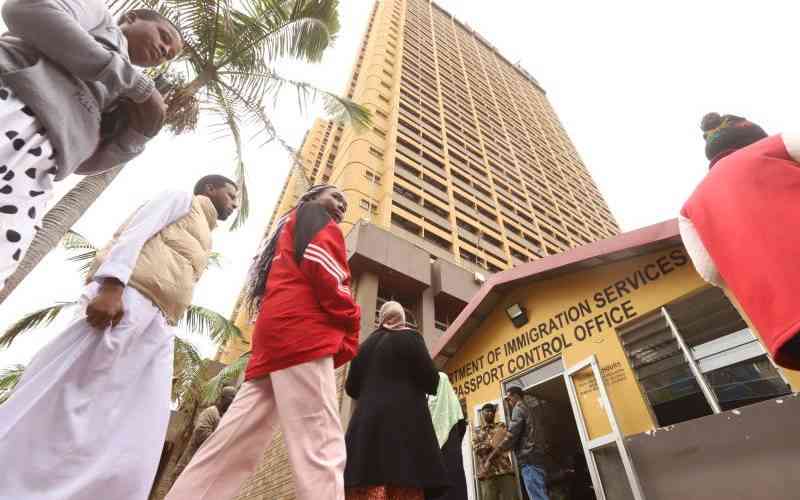×
The Standard e-Paper
Kenya’s Boldest Voice

It was a few minutes to 11am when I arrived at the area just outside the eastern perimeter wall of Nyayo House, particularly the place where a sign declaring "Nyayo House Is A Corruption Free Zone" was recently erected.
It was the day I expected to collect my passport. Weeks earlier, I followed the process and booked a specific time and date. Blowing this opportunity would mean that I should book another appointment and wait until next month.